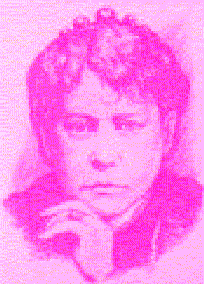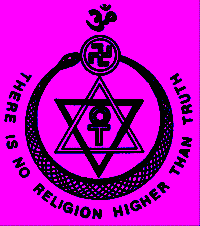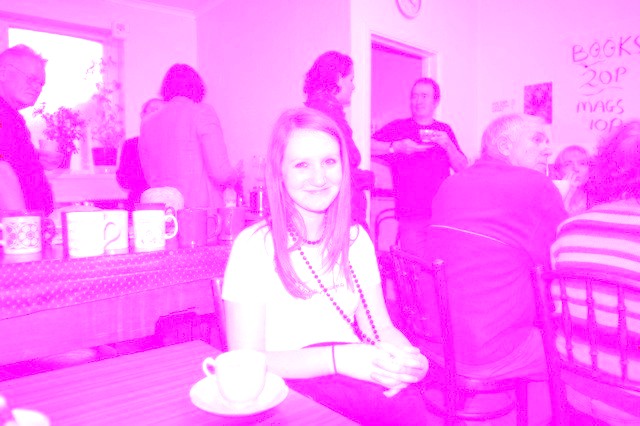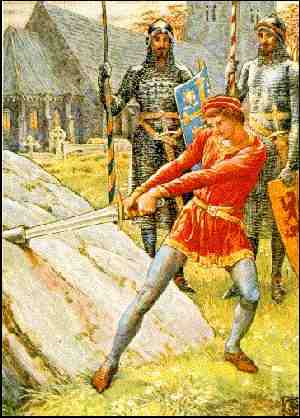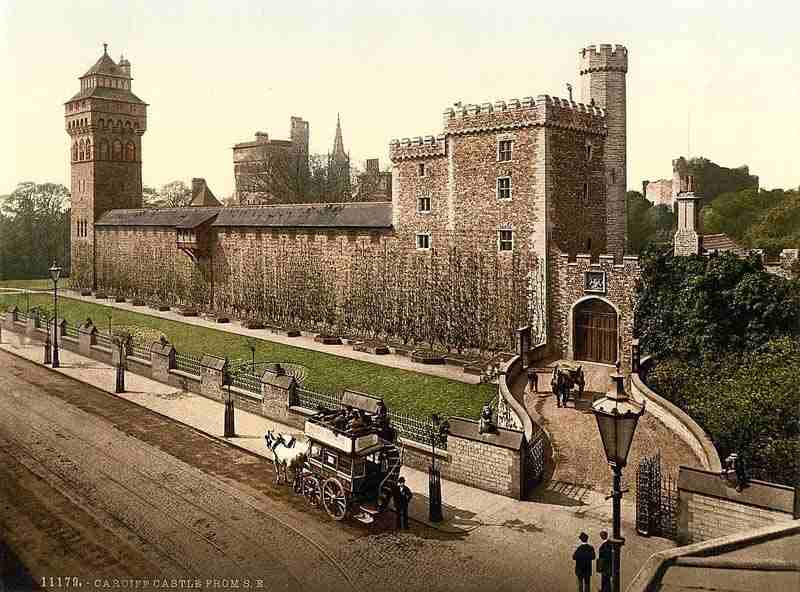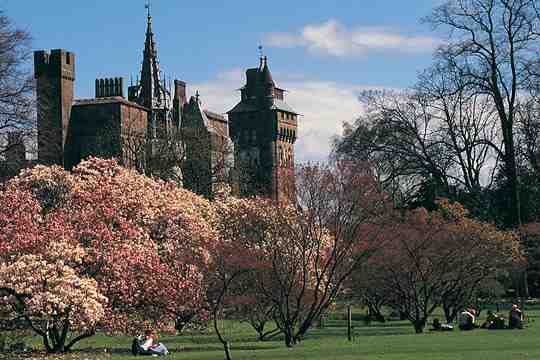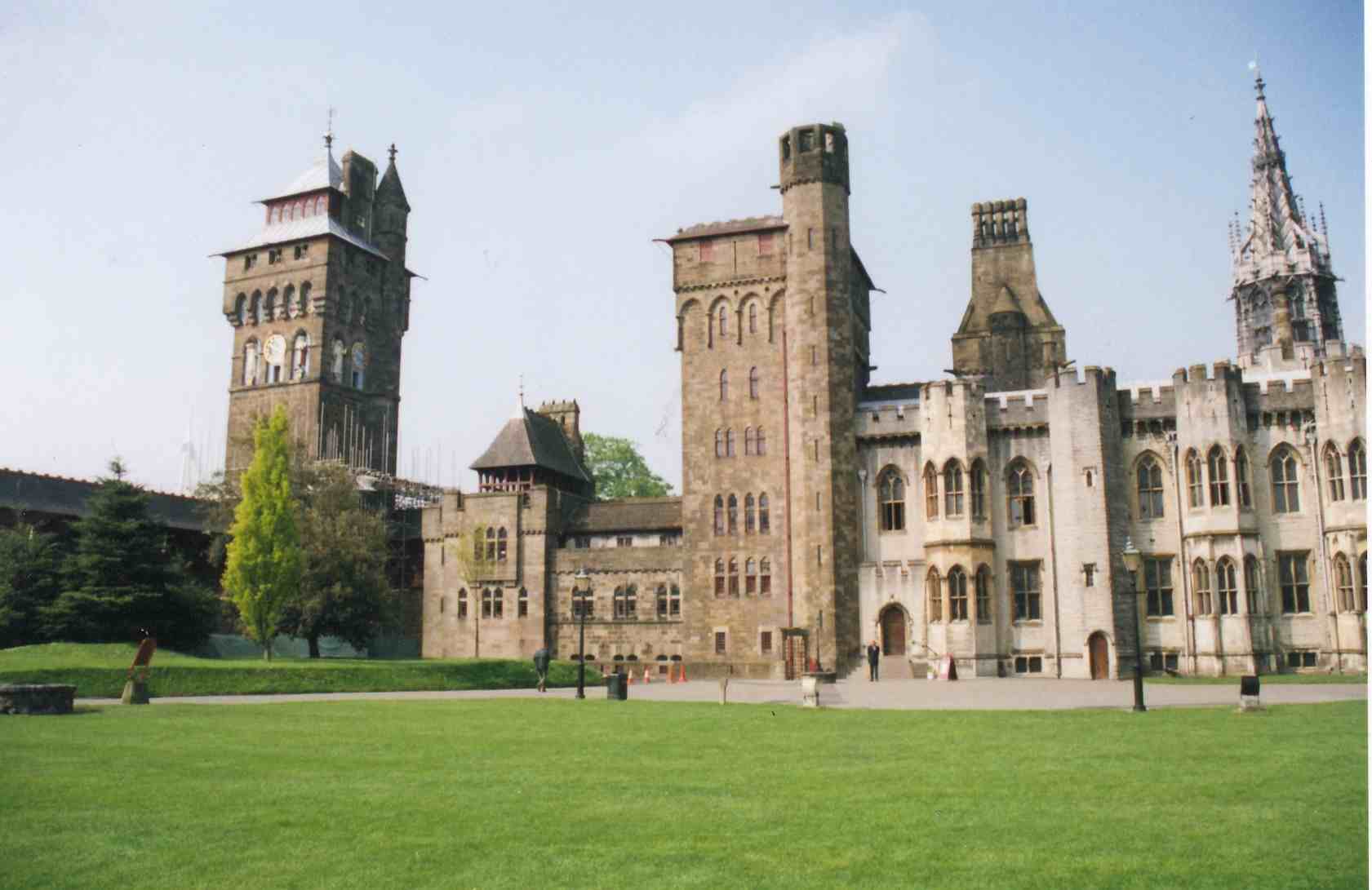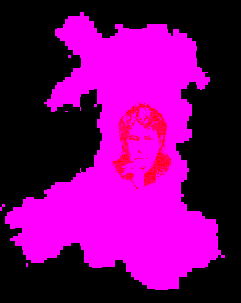
The All Wales Guide to
Getting Started in Theosophy
(And it’s all
Free Stuff )
But you don’t
have to live in Wales
to find this guide useful
Helena Petrovna Blavatsky
1831 – 1891
____________________
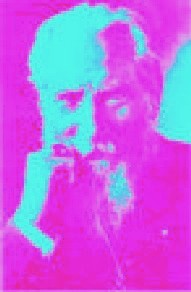
After
Death
From
A
Textbook of Theosophy
By
C
Death is the laying aside of the physical body; but it
makes no more difference to the ego than does the laying aside of an overcoat
to the physical man. Having put off his physical body, the ego continues to
live in his astral body until the force has become exhausted which has been
generated by such emotions and passions as he has allowed himself to feel
during earth life. When that has happened, the second death takes place; the
astral body also falls away from him, and he finds himself living in the mental
body and in the lower mental world. In that condition he remains until the
thought forces generated during his physical and astral lives have worn
themselves out; then he drops the third vehicle in its turn and remains once
more an ego in his own world, inhabiting his causal body.
There is, then, no such thing as death as it is
ordinarily understood. There is only a succession of stages in a continuous
life – stages lived in the three worlds one after another. The apportionment of
time between these three worlds varies much as man advances. The primitive man
lives almost exclusively in the physical world, spending only a few years in
the astral at the end of each of his physical lives.
As he develops, the astral life becomes longer, and as
intellect unfolds in him, and he becomes able to think, he begins to spend a
little time in the mental world as well. The ordinary man of civilized races
remains longer in the mental world than in the physical and astral; indeed, the
more a man evolves the longer becomes his mental life and the shorter his life
in the astral world.
The astral life is the result of all feelings which
have in them the element of self. If they have been directly selfish, they
bring him into conditions of great unpleasantness in the astral world; if,
though tinged with thoughts of self, they have been good and kindly they bring
him a comparatively pleasant though still limited astral life. Such of his
thoughts and feelings as have been entirely unselfish produce their result in
his life in the mental world; therefore that life in the mental world cannot be
other than blissful. The astral life, which the man has made for himself either
miserable or comparatively joyous, corresponds to what Christians call
purgatory; the lower mental life, which is always entirely happy, is what is
called heaven.
Man makes for himself his own purgatory and heaven,
and these are not planes, but states of consciousness. Hell does not exist; it
is only a figment of the theological imagination; but a man who lives foolishly
may make for himself a very unpleasant and long-enduring purgatory.
Neither purgatory nor heaven can ever be eternal, for
a finite cause cannot produce an infinite result. The variations in individual
cases are so wide that to give actual figures is somewhat misleading.
If we take the average man of what is called the lower
middle class, the typical specimen of which would be a small shopkeeper or
shop-assistant, his average life in the astral world would be perhaps about
forty years, and the life in the mental world about two hundred. The man of
spirituality and culture, on the other hand, may have perhaps twenty years of
life in the astral world and a thousand in the heaven life. One who is
specially developed may reduce the astral life to a few days or hours and spend
fifteen hundred years in heaven.
Not only does the length of these periods vary
greatly, but the conditions in both worlds also differ widely. The matter of
which all these bodies are built is not dead matter but living, and that fact
has to be taken into consideration. The physical body is built up of cells, each
of which is a tiny separate life animated by the Second Outpouring, which comes
forth from the Second Aspect of the Deity. These cells are of varying kinds and
fulfill various functions, and all these facts must be taken into account if
the man wishes to understand the work of his physical body and to live a
healthy life in it.
The same thing applies to the astral and mental
bodies. In the cell life which permeates them there is as yet nothing in the
way of intelligence, but there is a strong instinct always pressing in the
direction of what is for its development. The life animating the matter of
which such bodies are built is upon the outward arc of evolution, moving
downwards or outwards into matter, so that progress for it means to descend
into denser forms of matter, and to learn to express itself through them.
Unfoldment for the man is just the opposite of this; he has already sunk deeply
into matter and is now rising out of that towards his source.
There is consequently a constant conflict of interests
between the man within and the life inhabiting the matter of his vehicles,
inasmuch as its tendency is downward, while his is upward.The matter of the
astral body (or rather the life animating its molecules) desires for its
evolution such undulations as it can get, of as many different kinds as
possible, and as coarse as possible. The next step in its evolution will be to
ensoul physical matter and become used to its still slower oscillations; and as
a step on the way to that, it desires the grossest of the astral vibrations. It
has not the intelligence definitely to plan for these; but its instinct helps
it to discover how most easily to procure them.
The molecules of the astral body are constantly
changing, as are those of the physical body, but nevertheless the life in the
mass of those astral molecules has a sense, though a very vague sense, of
itself as a whole – as a kind of temporary entity. It does not know that it is
part of a man’s astral body; it is quite capable of understanding what a man
is; but it realizes in a blind way that under itpresent conditions it receives
many more waves, and much stronger ones, than it would receive if floating at
large in the atmosphere. It would then only occasionally catch, as from a
distance, the radiation of man’s passions and emotions; now it is in the very
heart of them, it can miss none, and it gets them at their strongest.
Therefore it feels itself in a good position, and it
makes an effort to retain that position. It finds itself in contact with something
finer than itself – the matter of the man’s mental body; and it comes to feel
that if it can contrive to involve that finer something in its own undulations,
they will be greatly intensified and prolonged.
Since astral matter is the vehicle of desire and
mental matter is the vehicle of thought, this instinct, when translated into
our language, means that if the astral body can induce us to think that we want
what it wants, it is much more likely to get it. Thus it exercises a slow
steady pressure upon the man – a kind of hunger on its side, but for him a
temptation to what is coarse and undesirable. If he be a passionate man there
is a gentle but ceaseless pressure in the direction of irritability; if he be a
sensual man, an equally steady pressure in the direction of impurity.
A man who does not understand this usually makes one
of two mistakes with regard to it: either he supposes it to be the prompting of
his own nature, and therefore regards that nature as inherently evil; or he
thinks of the pressure as coming from outside – as temptation of an imaginary
devil. The truth lies between the two. The pressure is natural, not to the man
but to the vehicle which he is using; its desire is natural and right for it, but
harmful to the man, and therefore it is necessary that he should resist it. If
he does so resist, if he declines to yield himself to the feelings suggested to
him, the particles within him which need those vibrations become apathetic for
lack of nourishment, and eventually atrophy and fall out from his astral body,
and are replaced by other particles, whose natural wave rate is more nearly in
accordance with that which the man habitually permits within his astral body.
This gives the reason for what are called promptings
of the lower nature during
life. If the man yields himself to them, such
promptings grow stronger and stronger until at least he feels as though he
could not resist them, and identifies himself with them – which is exactly what
this curious half-life in the particles of the astral body wants him to do.
At the death of the physical body this vague astral
consciousness is alarmed. It realizes that its existence as a separated mass is
menaced, and it takes instinctive steps to defend itself and to maintain its
position as long as possible. The matter of the astral body is far more fluidic
than that of the physical, and this consciousness seizes upon its particles and
disposes them so as to resist encroachment. It puts the grossest and densest
upon the outside as a kind of shell, and arranges the others in concentric
layers, so that the body as a whole may become as resistant to friction as its
constitution permits, and may therefore retain its shape as long as possible.
For the man this produces various unpleasant effects.
The physiology of the astral body is quite different from that of the physical;
the latter acquires its information from without by means of certain organs
which are specialized as the instruments of its senses, but the astral body has
no separated senses in our meaning of the word. That which for the astral body
corresponds to sight is the power of its molecules to respond to impacts from
without, which come to them by means of similar molecules. For example, a man
has within his astral body matter belonging to all the subdivisions of the
astral world, and it is because of that that he is capable of “seeing” objects
built of the matter of any of these subdivisions.
Supposing an astral object to be made of the matter of
the second and third subdivisions mixed, a man living in the astral world could
perceive that object only if on the surface of his astral body there were
particles belonging to the second and third subdivisions of that world which
were capable of receiving and recording the vibrations which that object set
up. A man who from the arrangement of his body by the vague consciousness of
which we have spoken, had on the outside of that vehicle only the denser matter
of the lowest subdivision, could no more be conscious of the object which we
have mentioned than we are ourselves conscious in the physical body of the
gases which move about us in the atmosphere or of objects built exclusively of
etheric matter.
During physical life the matter of the man’s astral
body is in constant motion, and its particles pass among one another much as do
those of boiling water.
Consequently at any given moment it is practically
certain that particles of all varieties will be represented on the surface of
his astral body, and that therefore when he is using his astral body during
sleep he will be able to “see” by its means any astral object which approaches
him.
After death, if he has allowed the rearrangement to be
made (as from ignorance, all ordinary persons do) his condition in this respect
will be different. Having on the surface of his astral body only the lowest and
grossest particles, he can receive impressions only from corresponding
particles outside; so that instead of seeing the whole of the astral world
about him, he will see only one-seventh of it, and that the densest and most
impure. The vibrations of this heavier matter are the expressions only of
objectionable feelings and emotions, and of the least refined class of astral
entities. Therefore it emerges that a man in this condition can see only the
undesirable inhabitants of the astral world, and can feel only its most
unpleasant and vulgar influences.
He is surrounded by other men, whose astral bodies are
probably of quite ordinary character; but since he can see and feel only what
is lowest and coarsest in them, they appear to him to be monsters of vice with
no redeeming features. Even his friends seem not at all what they used to be,
because he is now incapable of appreciating any of their better qualities.
Under these circumstances it is little wonder that he considers the astral
world a hell; yet the fault is in no way with the astral world, but with
himself – first, for allowing himself so much of that ruder type of matter, and
secondly, for letting that vague astral consciousness dominate him and dispose
it in that particular way.
The man who has studied these matters declines
absolutely to yield to the pressure during life or to permit the rearrangement
after death, and consequently he retains his power of seeing the astral world
as a whole, and not merely the cruder and baser part of it.
The astral world has many points in common with the
physical; just like the physical, it presents different appearances to
different people, and even to the same person at different periods of his
career. It is the home of emotion and of lower thoughts; and emotions are much
stronger in that world than in this. When a person is awake we cannot see that
larger part of his emotion at all; its strength goes in setting in motion the
gross physical matter of the brain. So if we see a man show affection here,
what we can see is not the whole of his affection, but only such part of it as
is left after all this other work has been done. Emotions therefore bulk far
more largely in the astral life than in the physical. They in no way exclude
higher thought if they are controlled, so in the astral world as in the
physical a man may devote himself to study and to helping his fellows, or he
may waste his time and drift about aimlessly.
The astral world extends nearly to the mean distance
of the orbit of the moon; but though the whole of this realm is open to any of
its inhabitants who have not permitted the redistribution of their matter, the
great majority remain much nearer to the surface of the earth. The matter of
the different subdivisions of that world interpenetrates with perfect freedom,
but there is on the whole a general tendency for the denser matter to settle
towards the center. The conditions are much like those which obtain in a bucket of water which
contains in suspension a number of kinds of matter of different degrees of
density. Since the water is kept in perpetual motion, the different kinds of
matter are diffused through it; but in spite of that, the densest matter is found
in greatest quantity nearest to the bottom. So that though we must not at all
think of the various subdivisions of the astral world as lying above one
another as do the coats of an onion, it is nevertheless true that the average
arrangement of the matter of those subdivisions partakes somewhat of that
general character.
Astral matter interpenetrates physical matter
precisely as though it were not there, but each subdivision of physical matter
has a strong attraction for astral matter of the corresponding subdivision.
Hence it arises that every physical body has its astral counterpart. If I have
a glass of water standing upon a table, the glass and the table, being of
physical matter in the solid state, are interpenetrated by astral matter of the
lowest subdivision. The water in the glass, being liquid, is interpenetrated by
astral matter of the sixth subdivision; whereas the air surrounding both,
being physical matter in the gaseous
condition, is entirely interpenetrated by astral gaseous matter – that is,
astral matter of the fifth subdivision.
But just as air, water, glass and table are alike
interpenetrated all the time by the finer physical matter which we have called
etheric, so are all the astral counterparts interpenetrated by the finer astral
matter of the higher subdivisions which correspond to the etheric. But even the
astral solid is less dense than the finest of the physical ethers.
The man who finds himself in the astral world after
death, if he has not submitted to the rearrangement of the matter of his body,
will notice but little difference from physical life. He can float about in any
direction at will, but in actual fact he usually stays in the neighbourhood to
which he is accustomed. He is still able to perceive his house, his room, his
furniture, his relations, his friends. The living, when ignorant of the higher
worlds, suppose themselves to have “lost” those who have laid aside their
physical bodies; but the dead are never for a moment under the impression that
they have lost the living.
Functioning as they are in the astral body, the dead
can no longer see the physical bodies of those whom they have left behind; but
they do see their astral bodies, and as those are exactly the same in outline
as the physical, they are perfectly aware of the presence of their friends.
They see each one surrounded by a faint ovoid of luminous mist, and if they
happen to be observant, they may notice various other small changes in the
surroundings; but it is at least quite clear to them that they have not gone
away to some distant heaven or hell, but still remain in touch with the world
which they know, although they see it at a somewhat different angle.
The dead man has the astral body of his living friends
obviously before him, so he cannot think of him as lost; but while the friend
is awake, the dead man will not be able to make any impression upon him, for
the consciousness of the friend is then in the physical world, and his astral
body is being used only as a bridge. The dead man cannot therefore communicate
with his friend, nor can he read his friend’s higher thoughts; but he will see
by the change in color in the astral body any emotion which that friend may
feel, and with a little practice and observation he may easily learn to read
all those thoughts of his friend which have in them anything of self or of
desire.
When the friend falls asleep the whole position is
changed. He is then also conscious in the astral world side by side with the
dead man, and they can communicate in every respect as freely as they could
during physical life. The emotions felt by the living react strongly upon the
dead who love them. If the former give way to grief, the latter cannot but
suffer severely.
The conditions of life after death are almost infinite
in their variety, but they can be calculated without difficulty by any one who
will take the trouble to understand the astral world and to consider the
character of the person concerned. That character is not in the slightest
degree changed by death; the man’s thoughts, emotions and desires are exactly
the same as before. He is in every way the same man, minus his physical body,
and his happiness or misery depends upon the extent to which this loss of the
physical body affects him.
If his longings have been such as need a physical body
for their gratification, he is likely to suffer considerably. Such a craving
manifests itself as a vibration in the astral body, and while we are still in
this world most of its strength is employed in setting in motion the heavy
physical particles. Desire is therefore a far greater force in the astral life
than in the physical, and if the man has not been in the habit of controlling
it, and if in this new life it cannot be satisfied, it may cause him great and
long-continued trouble.
Take as an illustration the extreme case of a drunkard
or a sensualist. Here we have a lust which has been strong enough during
physical life to overpower reason, common-sense and all the feelings of decency
and of family affection.
After death the man finds himself in the astral world
feeling the appetite perhaps a hundred times more strongly, yet absolutely
unable to satisfy it because he has lost the physical body. Such a life is a
very real hell – the only hell there is; yet no one is punishing him; he is
reaping the perfectly natural result of his own action. Gradually as time
passes this force of desire wears out, but only at the cost of terrible
suffering for the man, because to him every day seems as a thousand years. He
has no measure of time such as we have in the physical world. He can measure it
only by his sensations. From a distortion of this fact has come the blasphemous
idea of eternal damnation.
Many other cases less extreme than this will readily
suggest themselves, in which a hankering which cannot be fulfilled may prove
itself a torture. A more ordinary case is that of a man who has no particular
vices, such as drink or sensuality, but yet has been attached entirely to
things of the physical world, and has lived a life devoted to business or to
aimless social functions. For him the astral world is a place of weariness; the
only things for which he craves are no longer possible for him, for in the
astral world there is no business to be done, and, though he may have as much
companionship as he wishes, society is now for him a very different matter,
because all the pretences upon which it is usually based in this world are no
longer possible.
These cases, however, are only the few, and for most
people the state after death is much happier than life upon earth. The first
feeling of which the dead man is usually conscious is one of the most wonderful
and delightful freedom. He has absolutely nothing to worry about, and no duties
rest upon him, except those which he chooses to impose upon himself. For all
but a very small
minority, physical life is spent in doing what the man
would much rather not do; but he has to do it in order to support himself or
his wife and family.
In the astral world no support is necessary; food is
no longer needed, shelter is not required, since he is entirely unaffected by
heat or cold; and each man by the mere exercise of his thought clothes himself
as he wishes. For the first time since early childhood the man is entirely free
to spend the whole of his time in doing exactly just what he likes.
His capacity for every kind of enjoyment is greatly
enhanced, if only that enjoyment does not need a physical body for expression.
If he loves thebeauties of Nature, it is now within his power to travel with
great rapidity and without fatigue over the whole world, to contemplate all its
loveliest spots, and to explore its most secret recesses. If he delights in
art, all the world’s masterpieces are at his disposal. If he loves music, he
can go where he will to hear it, and it will now mean much more to him than it
has ever meant before; for though he can no longer hear the physical sounds, he
can receive the whole effect of the music into himself in far fuller measure
than in this lower world. If he is a student of science, he not only can visit
the great scientific men of the world, and catch from them such thoughts and
ideas as may be within his comprehension, but also he can undertake the
researches of his own into the science of this higher world, seeing much more
of what he is doing than has ever before been possible to him. Best of all, he
whose great delight in this world has been to help his fellow men will still
find ample scope for his philanthropic efforts.
Men are no longer hungry, cold, or suffering from
disease in this astral world; but there are vast numbers who, being ignorant,
desire knowledge – who, being still in the grip of desire for earthly things,
need the explanation which will turn their thought to higher levels – who have
entangled themselves in a web of their own imaginings, and can be set free only
by one who understands these new surroundings and can help them distinguish the
facts of the world from their own ignorant misrepresentation of them. All these
can be helped by the man of
intelligence and of kindly heart. Many men arrive in
the astral world in utter ignorance of its conditions, not realizing at first
that they are dead, and when they do realize it fearing the fate that may be in
store for them, because of false and wicked theological teaching. All of these
need the cheer and comfort which can only be given to them by a man of common
sense who possesses some knowledge of the facts of nature.
There is thus no lack of the most profitable
occupation for any man whose interests during his physical life have been
rational; nor is there any lack of companionship. Men whose tastes and pursuits
are similar drift naturally together there just as they do here; and many
realms of Nature, which during our physical life are concealed by the dense
veil of matter, now lie open for the detailed study of those who care to
examine them.
To a large extent people make their own surroundings.
We have already referred
to the seven subdivisions of this astral world.
Numbering these from the highest and least material downwards, we find that
they fall naturally into three classes – division one, two and three forming
one such class, and four, five and six another; while the seventh and lowest of
all stands alone. As I have said,although they all interpenetrate, their
substance has a general tendency to arrange itself according to its specific
gravity, so that most of the matter belonging to the higher subdivisions is
found at a greater elevation above the surface of the earth than the bulk of
the matter of the lower portions.
Hence, although any person inhabiting the astral world
can move into any part of it, his natural tendency is to float at the level
which corresponds with the specific gravity of the heaviest matter in his
astral body. The man who has not permitted the rearrangement of the matter of
his astral body after death is entirely free of the whole astral world; but the
majority, who do permit it, are not equally free – not because there is
anything to prevent them from rising to the highest level or sinking to the
lowest, but because they are able to sense clearly only a certain part of that
world.
I have described something of the fate of a man who is
on the lowest level, shut in by a strong shell of coarse matter. Because of the
extreme comparative density of that matter he is conscious of less outside of
his own subdivision than a man at any other level. The general specific gravity
of his own astral body tends to make him float below the surface of the earth.
The physical matter of the earth is absolutely non-existent to his astral
senses, and his natural attraction is to that least delicate form of astral
matter which is the counterpart of that solid earth. A man who has confined
himself to that lowest subdivision will therefore usually find himself floating
in darkness and cut off to a great extent from others of the dead, whose lives
have been such as to keep them on a higher level.
Divisions four, and six of the astral world (to which
most people are attracted) have for their background the astral counterpart of
the physical world in which we live, and all its familiar accessories. Life in
the sixth subdivision is simply like our ordinary life on this earth minus the
physical body and its necessities while as it ascends through the fifth and
fourth divisions it becomes less and less material and is more and more
withdrawn from our lower world and its interests.
The first, second and third sections, though occupying
the same space, yet give the impression of being much further removed from the
physical, and correspondingly less material. Men who inhabit these levels lose
sight of the earth and its belongings; they are usually deeply self-absorbed,
and to a large extent create their own surroundings, though these are
sufficiently objective to be perceptible to other men of their level, and also
to clairvoyant vision.
This region is the summerland of which we hear in
spiritualistic circles – the world in which, by the exercise of their thought,
the dead call into temporary existence their houses and schools and cities.
These surroundings, though fanciful from our point of view, are to the dead as
real as houses, temples or churches built of stone are to us, and many people
live very contentedly there for a number of years in the midst of all these
thought creations.
Some of the scenery thus produced is very beautiful;
it includes lovely lakes, magnificent mountains, pleasant gardens, decidedly
superior to anything in the physical world; though on the other hand it also
contains much which to the trained clairvoyant (who has learned to see things
as they are) appears ridiculous – as, for example, the endeavors of the
unlearned to make a thought form of some of the curious symbolic descriptions
contained in their various scriptures. An ignorant peasant’s thought image of a
beast full of eyes within, or of a sea of glass mingled with fire, is naturally
often grotesque, although to its maker it is perfectly satisfactory. This
astral world is full of thought-created figures and landscapes. Men of all
religions image here their deities and their respective conceptions of
paradise, and enjoy themselves greatly among these dream forms until they pass
into the mental world and come into touch with something nearer to reality.
Every one after death – any ordinary person, that is,
in whose case the rearrangement of the matter of the astral body has been made
– has to pass through all these subdivisions in turn. It does not follow that
every one is conscious in all of them. The ordinary decent person has in his
astral body but little of the matter of its lowest portion – by no means enough
to construct a heavy shell. The redistribution puts on the outside of the body
its densest matter; in the ordinary man this is usually matter of the sixth
subdivision, mixed with a little of the seventh, and so he finds himself
viewing the counterpart of the physical world.
The ego is steadily withdrawing into himself, and as
he withdraws he leaves behind him level after level of this astral matter. So
the length of the man’s detention in any section of the astral world is
precisely in proportion to the amount of its matter which is found in his
astral body, and that in turn depends upon the life he has lived, the desires
he has indulged, and the class of matter which by so doing he has attracted
towards him and built into himself. Finding himself then in the sixth section,
still hovering about the places and persons with which he was most closely connected
while on earth, the average man as time passes on finds the earthly
surroundings gradually growing dimmer and becoming of less and less importance
to him, and he tends more and more to mould his entourage into agreement with
the more persistent of his thoughts. By the time that he reaches the third
level he finds that this characteristic has
entirely superseded the vision of the realities of the
astral world.
The second subdivision is a shade less material than
the third, for if the latter is the summerland of the spiritualists, the former
is the material heaven of the more ignorant orthodox; while the first or
highest level appears to be the special home of those who during life have
devoted themselves to materialistic but intellectual pursuits, following them
not for the sake of benefiting their fellow men, but either from motives of
selfish ambition or simply for the sake of intellectual exercise.
All these people are perfectly happy. Later on they
will reach a stage when they can appreciate something much higher, and when
that stage comes they will find the higher ready for them.
In this astral life people of the same nation and of
the same interests tend to keep together, precisely as they do here. The
religious people, for example, who imagine for themselves a material heaven, do
not at all interfere with men of other faiths whose ideas of celestial joy are
different. There is nothing to prevent a Christian from drifting into the
heaven of the Hindu or the Mohammedan, but he is little likely to do so,
because his interests and attractions are all in the heaven of his own faith,
along with friends who have shared that faith with him. This is by no means the
true heaven described by any of the religions, but only a gross and material
misrepresentation of it; the real thing will be found when we come to consider
the mental world.
The dead man who has not permitted the rearrangement
of the matter of his astral body is free of the entire world, and can wander
all over it at will, seeing the whole of whatever he examines, instead of only
a part of it as the others do. He does not find it inconveniently crowded, for
the astral world is much larger than the surface of the physical earth, while
its population is somewhat smaller, because the average life of humanity in the
astral world is shorter than the average of the physical.
Not only the dead, however, are the inhabitants of
this astral world, but always about one third of the living as well, who have
temporarily left their physical bodies behind them in sleep. The astral world
has also a great number of non-human inhabitants, some of them far below the
level of man, and some considerably above him. The nature spirits form an
enormous kingdom, some of whose members exist in the astral world, and make a
large part of its population.
This vast kingdom exists in the physical world also,
for many of its orders wear etheric bodies, and are only just beyond the range
of ordinary physical sight. Indeed, circumstances not infrequently occur under
which they can be seen, and in many lonely mountain districts these appearances
are traditional among the peasants, by whom they are commonly spoken of as
fairies, good people, pixies or brownies.
They are protéan, but usually prefer to wear a
miniature human form. Since they are not yet individualized, they may be
thought of almost as etheric and astral animals; yet many of them are
intellectually quite equal to average humanity.
They have their nations and types just as we have, and
they are often grouped into four great classes, and called the spirits of
earth, water, fire and air.
Only the members of the last of these four divisions
normally reside in the astral world, but their numbers as so prodigious that
they are everywhere present in it.
Another great kingdom has its representatives here –
the kingdom of the angels (called in India the devas). This is a body of beings
who stand far higher in evolution than man, and only the lowest fringe of their
hosts touches the astral world – a fringe whose constituent members are perhaps
at about the level of development of what we should call a distinctly good man.
We are neither the only nor even the principal
inhabitants of our solar system; there are other lines of evolution running
parallel with our own which do not pass through humanity at all, though they
must all pass through a level corresponding to that of humanity. On one of
these other lines of evolution are the nature spirits above described, and at a
higher level of that line comes this great kingdom of the angels. At our
present level of evolution they come into obvious contact with us only very
rarely, but as we develop we shall be likely to see more of them - especially
as the cyclic progress of the world is now bringing it more and more under the
influence of the Seventh Ray.
This Seventh Ray has ceremonial for one of its
characteristics, and it is through ceremonial such as that of the Church or of
Free-masonry that we come most easily into touch with the angelic kingdom.
When all the man’s lower emotions have worn themselves
out – all emotions, I mean, which have in them any thought of self – his life
in the astral world is over, and the ego passes on into the mental world. This
is not in any sense a movement in space; it is simply that the steady process
of withdrawal has now passed beyond even the finest kind of astral matter; so
that the man’s consciousness is focused in the mental world. His astral body
has not entirely disintegrated, though it is in process of doing so, and he
leaves behind him an astral corpse, just as at a previous stage of the
withdrawal he left behind him a physical corpse. There is a certain difference
between the two which should be noticed, because of the consequences which
ensue from it.
When the man leaves his physical body his separation
from it should be complete, and generally is so; but this is not the case with
the much finer matter of the astral body. In the course of his physical life
the ordinary man usually
entangles himself so much in astral matter (which,
from another point of view, means that he identifies himself so closely with
his lower desires) that the indrawing force of the ego cannot entirely separate
him from it again.
Consequently, when he finally breaks away from the
astral body and transfers his activities to the mental, he loses a little of
himself, he leaves some of
himself behind imprisoned in the matter of the astral
body.This gives a certain remnant of vitality to the astral corpse, so that it
still moves freely in the astral world, and may easily be mistaken by the
ignorant for the man himself – the more so as such fragmentary consciousness as
still remains to it is part of the man, and therefore it naturally regards
itself and speaks of itself as the man. It retains his memories but is only a
partial and unsatisfactory representation of him. Sometimes in spiritualistic
séances one comes into contact with an entity of this description, and wonders
how it is that one’s friend has deteriorated so much since his death. To this
fragmentary entity we give the name “shade”.
At a later stage even this fragment of consciousness
dies out of the astral body, but does not return to the ego to whom it
originally belonged. Even then the astral corpse still remains, but when it is
quite without any trace of its former life we call it a “shell”. Of itself a
shell cannot communicate at a séance, or take any action of any sort; but such
shells are frequently seized upon by sportive nature spirits and used as
temporary habitations. A shell so occupied can communicate at a séance and
masquerade as its original owner, since some of his
characteristics and certain portions of his memory can
be evoked by the nature spirit from his astral corpse.
When a man falls asleep, he withdraws in his astral
body, leaving the whole of the physical vehicle behind him. When he dies, he
draws out with him the etheric part of the physical body, and consequently has
usually at least a moment of unconsciousness while he is freeing himself from
it. The etheric double is not a vehicle, and cannot be used as such; so when
the man is surrounded by it, he is for the moment able to function neither in
the physical world nor the astral. Some men succeed in shaking themselves free
of this etheric envelope in a few minutes; other rest within it for hours, days
or even weeks.
Nor is it certain that, when the man is free from
this, he will at once become conscious of the astral world. For there is in him
a good deal of the lowest kind of astral matter, so that a shell of this may be
made around him. But he may be quite unable to use that matter. If he had lived
a reasonably decent life he is little in the habit of employing it or
responding to its vibrations, and he cannot instantly acquire this habit. For
that reason, he may remain unconscious until that matter gradually wears away,
and some matter which he is in the habit of using comes on the surface. Such an
occlusion, however, is scarcely ever complete, for even in the most carefully made
shell some particles of the finer matter occasionally find their way to the
surface and give him fleeting glimpses of his surroundings.
There are some men who cling so desperately to their
physical vehicles that they will not relax their hold upon the etheric double,
but strive with all their might to retain it. They may be successful in doing
so for a considerable time, but only at the cost of great discomfort to
themselves. They are shut out from both worlds, to find themselves surrounded
by a dense grey mist, through which they see very dimly the things of the
physical world, but with all the colour gone from them. It is a terrible
struggle to them to maintain their position in this miserable condition, and
yet they will not relax their hold upon the etheric double, feeling that that
is at least some sort of link with the only world that they know. Thus they
drift about in a condition of loneliness and misery until from sheer fatigue
their hold fails them, and they slip into the comparative happiness of astral
life.
Sometimes in their desperation they grasp blindly at
other bodies, and try to enter into them, and occasionally they are successful
in such an attempt. They may seize upon a baby body, ousting the feeble
personality for whom it was intended, or sometimes they grasp even the body of
an animal. All this trouble arises entirely from ignorance, and it can never
happen to anyone who understands the laws of life and death.
When the astral life is over, the man dies to that
world in turn, and awakens in the mental world. With him it is not at all what
it is to the trained clairvoyant, who ranges through it and lives amidst the
surroundings which he finds there, precisely as he would in the physical or
astral worlds. The ordinary man has all through his life been encompassing
himself with a mass of thought-forms. Some which are transitory, to which he
pays little attention, have fallen away from his long ago, but those which
represent the main interests of his life are always with him, and grow ever
stronger and stronger. If some of these have been selfish, their force pours
down into astral matter, and he has exhausted them during his life in the
astral world. But those which are entirely unselfish belong purely to his
mental body, and so when he finds himself in the mental world it is through
these special thoughts that he is able to appreciate it.
His mental body is by no means fully developed; only
those parts of it are really in action to their fullest extent which he has
used in this altruistic manner. When he awakens again after the second death
his first sense is one of
indescribable bliss and vitality – a feeling of such
utter joy in living that he needs for the time nothing but just to live. Such
bliss is of the essence of life in all the higher worlds of the system. Even
astral life has possibilities of happiness far greater than anything that we
can know in the dense body; but the heaven life in the mental world is out of
all proportions more blissful than the astral. In each higher world the same
experience is repeated. Merely to live in any one them seems the uttermost
conceivable bliss; and yet, when the next one is reached, it is seen that it
far surpasses the last.
Just as the bliss increases, so does the wisdom and
the breadth of view. A man fusses about in the physical world and thinks
himself so busy and so wise; but when he touches even the astral, he realizes
at once that he has been all the time only a caterpillar crawling about and
seeing nothing but his own leaf, whereas now he has spread his wings like the
butterfly and flown away into the sunshine of a wider world. Yet, impossible as
it may seem, the same experience is repeated when he passes into the (Page 90)
mental world, for this life is in turn so much fuller and wider and more
intense than the astral that once more no comparison is possible. And yet
beyond all these there is still another life, that of the intuitional world,
unto which even this is but as moonlight unto sunlight.
The man’s position in the mental world differs widely
from that in the astral. There he was using a body to which he was thoroughly
accustomed, a body which he had been in the habit of employing every night
during sleep. Here he finds himself living in a vehicle which he has never used
before – a vehicle furthermore which is very far from being fully developed – a
vehicle which shuts him out to a great extent from the world about him, instead
of enabling him to see it.
The lower part of his nature burnt itself away during
his purgatorial life, and now there remains to him only his higher and more
refined thoughts, the noble and unselfish aspirations which he poured out
during earth life.
These cluster round him, and make a sort of shell
about him, through the medium of which he is able to respond to certain types
of vibrations in this refined matter.
These thoughts which surround him are the powers by
which he draws upon the wealth of the heaven-world, and he finds it to be a
storehouse of infinite extent, upon which he is able to draw just according to
the power of those thoughts and aspirations; for in this world is existing the
infinite fullness of the Divine Mind, open in all its limitless affluence to
every soul, just in proportion as that soul has qualified itself to receive. A
man who has already completed his human evolution, who has fully realized and
unfolded the divinity whose germ is within him, finds the whole of this glory
within his reach; but since none of us has yet done that, since we are only
gradually rising toward that splendid consummation, it follows that none of us
as yet can grasp that entirety.
But each draws from it and cognizes so much of it as
he has by previous effort prepared himself to take. Different individuals bring
different capacities; they tell us in the East that each man brings his own
cup, and some of the cups are large and some are small, but small or large
every cup is filled to its utmost capacity; the sea of bliss holds far more
than enough for all.
A man can look out upon this glory and beauty only through
the windows which he himself has made. Every one of these thought-forms is such
a window, through which response may come to him from the forces without. If
during his earth life he has chiefly regarded physical things, then he has made
for himself but few windows through which this higher glory can shine in upon
him. Yet every man who is above the lowest savage must have had some touch of
pure unselfish feeling, even if it were but once in all his life, and that will
be a window for him now.
The ordinary man is not capable of any great activity
in this mental world; his condition is chiefly receptive, and his vision of
anything outside his own shell of thought is of the most limited character. He
is surrounded by living forces, mighty angelic inhabitants of this glorious
world, and many of their orders are very sensitive to certain aspirations of
man and readily respond to them. But a man can take advantage of these only in
so far as he has already prepared himself to profit by them, for his thoughts
and aspirations are only along certain lines, and he cannot suddenly form new
lines. There are many directions which the higher thought may take – some of
them personal and some impersonal.
Among the latter are art, music and philosophy; and a
man whose interest lay along any one of these lines finds both measureless
enjoyment and unlimited instruction waiting for him – that is, the amount of
enjoyment and instruction is limited only by his power of perception.
We find a large number of people whose only higher
thoughts are those connected with affection and devotion. If a man loves
another deeply or if he feels strong devotion to a personal deity, he makes a
strong mental image of that friend or the deity, and the object of his feeling
is often present in his mind.
Inevitably he takes that mental image into the heaven
world with him, because it is to that level of matter that it naturally
belongs.Take first the feeling of affection. The love which forms and retains
such an image is very powerful force – a force which is strong enough to reach
and to act upon the ego of his friend in the higher part of the mental world.
It is that ego that is the real man whom he loves – not the physical body which
is so partial a representation of him. The ego of the friend, feeling this
vibration, at once and eagerly responds to it, and pours himself into the
thought form which has been made for him; so that the man’s friend is truly
present with him more vividly than ever before. To this result it makes no
difference whatever whether the friend is what we call living or dead; the
appeal is made not to the fragment of the friend which is sometimes imprisoned
in a physical body, but to the man himself on his own true level; and he always
responds. A man who has a hundred friends can simultaneously and fully respond
to the affection of every one of them, for no number ofrepresentations on a
lower level can exhaust the infinity of the ego.
Thus every man in his heaven life has around him all
the friends for whose company he wishes, and they are for him always at their
best, because he himself makes for them in the thought-form through which they
manifest to him. In our limited physical world we are so accustomed to thinking
of our friend as only the limited manifestation which we know in the physical
world, that it is at first difficult for us to realize the grandeur of the
conception; when we can realize it, we shall see how much nearer we are in
truth to our friends in the heaven life than we ever were on earth. The same is
true in the case of devotion. The man in the heaven world is two great stages
nearer to the object of his devotion than he was during physical life, and so
his experiences are of a far more transcendent character.
In this mental world, as in the astral, there are
seven subdivisions. The first, second and third are the habitat of the ego in
his causal body, so the mental body contains matter of the remaining four only,
and it is in those sections that his heaven life is passed. Man does not,
however, pass from one to the other of these, as in the case in the astral
world, for there is nothing in this life corresponding to the rearrangement.
Rather is the man drawn to the level which best corresponds to the degree of
his development, and on that level he spends the whole of his life in the
mental body. Each man makes his own conditions, so that the number of varieties
is infinite.
Speaking broadly, we may say that the dominant
characteristic observed in the lowest portion is unselfish family affection.
Unselfish it must be, or it would find no place here;
all selfish tinges, if there were any, worked out their results in the astral
world. The dominant characteristic of the sixth level may be said to be anthropomorphical
religious devotion; whilst that of the fifth section is devotion expressing
itself in active work of some sort. All these – the fifth, sixth and seventh
subdivisions – are concerned with the working out of devotion to personalities
(either to one’s family and friends or to a personal deity) rather than the
wider devotion to humanity for its own sake, which finds its expression in the
next section. The activities of this fourth stage are varied. They can best be
arranged in four main divisions: unselfish pursuit of spiritual knowledge; high
philosophy or scientific thought; literary or artistic ability exercised for
unselfish purposes; and service for the sake of service.
Even to this glorious heaven life there comes an end,
and then the mental body in its turn drops away as the others have done, and
the man’s life in his causal body begins. Here the man needs no windows, for
this is his true home and all his walls have fallen away. The majority of men
have as yet but very little consciousness at such a height as this; they rest
dreamily unobservant and scarcely awake, but such vision as they have is true,
however limited it may be by their lack of development. Still, every time they
return, these limitations will be smaller, and they themselves will be greater;
so that this truest life will be wider and fuller for them.
As this improvement continues, this casual life grows
longer and longer, assuming an ever larger proportion as compared to the
existence at lower levels.
And as he grows, the man becomes capable not only of
receiving but also of giving. Then indeed is his triumph approaching, for he is
learning the lesson of the Christ, learning the crowning glory of sacrifice,
the supreme delight of pouring out all his life for the helping of his
fellow-men, the devotion of the self to the all, of celestial strength to human
service, of all those splendid heavenly forces to the aid of the struggling
sons of earth. That is part of the life that lies before us; these are some of
the steps which even we who are still so near the bottom of the golden ladder
may see rising above us, so that we may report them to those who have not seen
as yet, in order that they too may open their eyes to the unimaginable splendor
which surrounds them here and now in this dull daily life. This is a part of
the gospel of Theosophy – the certainty of this sublime future for all. It is
certain because it is here already; because to inherit it we have only to fit
ourselves for it.
______________________
The All Wales
Guide to
Getting Started in Theosophy
_______________________
Find
out more about
Theosophy
with these links
Cardiff
Theosophical Society meetings are informal
and there’s always a cup of tea afterwards
The Cardiff Theosophical Society Website
The National Wales Theosophy Website
Theosophy Cardiff’s Instant Guide
One liners and quick explanations
H P Blavatsky is usually the only
Theosophist that most people have ever
heard of. Let’s put that right
The Voice of the Silence Website
Dave’s
Streetwise Theosophy Boards
If you run a Theosophy Study Group,
please feel free to use any material
on this site
If you run a
Theosophy Group you can use
this as an
introductory handout
It’s all “water
under the bridge” but everything you do
makes an imprint
on the Space-Time Continuum.
An Independent Theosophical Republic
Links to Free Online Theosophy
Study Resources; Courses, Writings,
The main criteria
for the inclusion of
links on this
site is that they have some
relationship
(however tenuous) to Theosophy
and are
lightweight, amusing or entertaining.
Topics include
Quantum Theory and Socks,
Dick Dastardly and Legendary Blues Singers.
Lentil burgers, a
thousand press ups before breakfast and
the daily 25 mile
run may put it off for a while but death
seems to get most
of us in the end. We are pleased to
present for your
consideration, a definitive work on the
subject by a
Student of Katherine Tingley entitled
This is for everyone, you don’t have to live
in Wales to make good use of this Website
The Seven Principles of Man
By
Annie Besant
No
Aardvarks were harmed in the
The Spiritual Home of Urban Theosophy
The Earth Base for Evolutionary Theosophy
Reincarnation
This
guide has been included in response
to the
number of enquiries we receive on this
subject
at Cardiff
Theosophical Society
From A Textbook
of Theosophy By C W Leadbeater
How We Remember our Past Lives
Life after Death & Reincarnation
The
Slaughter of the Battle of the Somme 1916 leads to
a
great demand by the public for lectures on Reincarnation
Classic Introductory Theosophy Text
A Text Book of Theosophy
By C
What Theosophy Is From the Absolute to Man
The Formation of a Solar System The Evolution of Life
The Constitution of Man After Death
Reincarnation
The Purpose of Life The Planetary Chains
The Result of Theosophical Study
The Occult World
By
Alfred Percy Sinnett
The Occult World is an treatise on the
Occult and Occult Phenomena, presented
in
readable style, by an early giant of
the Theosophical Movement.
Preface to the American Edition Introduction
Occultism and its Adepts The Theosophical Society
First Occult Experiences Teachings of Occult Philosophy
Later Occult Phenomena Appendix
by
Annie
Besant
THE PHYSICAL PLANE THE ASTRAL PLANE
KÂMALOKA
THE MENTAL PLANE DEVACHAN
THE BUDDHIC AND NIRVANIC PLANES
THE THREE KINDS OF KARMA COLLECTIVE KARMA
THE LAW OF SACRIFICE MAN'S
ASCENT
______________________
Annie Besant Visits Cardiff 1924
National Wales
Centre for Theosophy
Blavatsky Wales
Theosophy Group
Selection of H P Blavatsky’s Writings
Theosophy Birmingham (England)
The Birmingham Annie Besant Lodge
Quotes
from the Writings of
Helena
Petrovna Blavatsky
The Secret Doctrine , Volume 2, Page 100
It is only by the attractive force of the contrasts
that the two opposites — Spirit and Matter — can be cemented together on
Earth, and, smelted in the fire of self-conscious experience and suffering, find themselves
wedded in Eternity.
The Secret Doctrine , Volume 2, Page 108
It is the motive, and the motive alone, which makes
any exercise of power become black, malignant, or white, beneficent Magic. It is
impossible to employ spiritual forces if there is the slightest tinge of
selfishness remaining in the operator .... The powers and forces of animal
nature can equally be used by the selfish and revengeful, as by the unselfish
and the all-forgiving; the powers and forces of spirit lend themselves only to the
perfectly pure in heart — and this is Divine Magic.
Isis Unveiled,
Volume 1, Page 36
The Secret Doctrine , Volume 3, Page 14
Even ignorance is better than
Head-learning with no Soul-wisdom to illuminate and guide it.
The Voice of the Silence, Page 43
Annotation - The Path, May, 1888
The Secret Doctrine , Proem [Volume 1], Page 35
Isis Unveiled, Volume 1, Page 210
The Secret Doctrine , Volume 1, Page 134
incarnation of
his God; and when the sense of personal responsibility will be so
Isis Unveiled, Volume 2, Page 374
It is the
motive, and the motive alone, which makes any exercise of power become
The Secret Doctrine , Volume 2, Page 498
Isis Unveiled, Volume 1, Page 36
From strength to
strength, from the beauty and perfection of one plane to the
greater beauty
and perfection of another, with accessions of new glory, of fresh
knowledge and
power in each cycle, such is the destiny of every Ego, which thus
becomes its own
saviour in each world and incarnation.
The Key to Theosophy, Page 105
The Secret Doctrine , Volume 1, Page 69
The mind
receives indelible impressions even from chance acquaintance or persons
Isis Unveiled, Volume 1, Page 311
The Key to Theosophy, Page 228
Tekels Park to be Sold to a Developer
Concerns about
the fate of the wildlife as
Tekels Park is to be Sold to a
Developer
Concerns are raised about the fate of
the wildlife as
The Spiritual Retreat, Tekels Park in
Camberley,
Surrey, England is to be sold to a
developer.
Tekels Park is a
50 acre woodland park, purchased
for the Adyar Theosophical Society in England
in 1929.
In addition to
concern about the park, many are
worried about the future of the Tekels Park
Deer
as they are not a
protected species.
Confusion as the
Theoversity moves out of
Tekels Park to Southampton,
Glastonbury &
Chorley in Lancashire while the
leadership claim
that the Theosophical Society will
carry on using
Tekels Park despite its sale to a developer
Anyone planning a
“Spiritual” stay at the
Tekels Park Guest
House should be aware of the sale.
Tekels Park & the Loch Ness Monster
A Satirical view
of the sale of Tekels Park
in Camberley,
Surrey to a developer
The Toff’s Guide to the Sale of Tekels Park
What the men in
top hats have to
say about the
sale of Tekels Park
________________________
The Theosophy Cardiff
Glastonbury Pages
The Theosophy Cardiff Guide to
The Theosophy Cardiff Guide to
The Theosophy Cardiff Guide to
The Terraced Maze of Glastonbury Tor
Glastonbury and
Joseph of Arimathea
The Grave of King Arthur & Guinevere
Views of Glastonbury High Street
The Theosophy Cardiff Guide to
Guide to the
Theosophy Wales
King Arthur Pages
Arthur draws the Sword from the Stone
The Knights of The Round Table
The Roman Amphitheatre at Caerleon,
Eamont Bridge, Nr Penrith, Cumbria, England.
Geoffrey of Monmouth
(History of the Kings of Britain)
The reliabilty of this work has long been a subject of
debate but it is the first definitive account of Arthur’s
Reign
and one which puts Arthur in a historcal context.
and his version’s political agenda
According to Geoffrey of Monmouth
The first written mention of Arthur as a heroic figure
The British leader who fought twelve battles
King Arthur’s ninth victory at
The Battle of the City of the Legion
King Arthur ambushes an advancing Saxon
army then defeats them at Liddington Castle,
Badbury, Near Swindon, Wiltshire, England.
King Arthur’s twelfth and last victory against the Saxons
Traditionally Arthur’s last battle in which he was
mortally wounded although his side went on to win
No contemporary writings or accounts of his life
but he is placed 50 to 100 years after the accepted
King Arthur period. He refers to Arthur in his inspiring
poems but the earliest written record of these dates
from over three hundred years after Taliesin’s death.
Pendragon Castle
Mallerstang Valley, Nr Kirkby Stephen,
A 12th Century Norman ruin on the site of what is
reputed to have been a stronghold of Uther Pendragon
From
wise child with no earthly father to
Megastar
of Arthurian Legend
History of the Kings of Britain
Drawn from the Stone or received from the Lady of the Lake.
Sir Thomas Malory’s Le Morte d’Arthur has both versions
with both swords called Excalibur. Other versions
5th & 6th Century Timeline of Britain
From the departure of the Romans from
Britain to the establishment of sizeable
Anglo-Saxon Kingdoms
Glossary of
Arthur’s uncle:- The puppet ruler of the Britons
controlled and eventually killed by Vortigern
Amesbury, Wiltshire, England. Circa 450CE
An alleged massacre of Celtic Nobility by the Saxons
History of the Kings of Britain
Athrwys / Arthrwys
King of Ergyng
Circa 618 - 655 CE
Latin: Artorius; English: Arthur
A warrior King born in Gwent and associated with
Caerleon, a possible Camelot. Although over 100 years
later that the accepted Arthur period, the exploits of
Athrwys may have contributed to the King Arthur Legend.
He became King of Ergyng, a kingdom between
Gwent and Brycheiniog (Brecon)
Angles under Ida seized the Celtic Kingdom of
Bernaccia in North East England in 547 CE forcing
Although much later than the accepted King Arthur
period, the events of Morgan Bulc’s 50 year campaign
to regain his kingdom may have contributed to
Old Welsh: Guorthigirn;
Anglo-Saxon: Wyrtgeorn;
Breton: Gurthiern; Modern Welsh; Gwrtheyrn;
*********************************
An earlier ruler than King Arthur and not a heroic figure.
He is credited with policies that weakened Celtic Britain
to a point from which it never recovered.
Although there are no contemporary accounts of
his rule, there is more written evidence for his
existence than of King Arthur.
How Sir Lancelot slew two giants,
From Sir Thomas Malory’s Le Morte d’Arthur
How Sir Lancelot rode disguised
in Sir Kay's harness, and how he
From Sir Thomas Malory’s Le Morte d’Arthur
How Sir Lancelot jousted against
four knights of the Round Table,
From Sir Thomas Malory’s Le Morte d’Arthur
Quick Explanations with Links to More Detailed Info
What is Theosophy ? Theosophy Defined (More Detail)
Three Fundamental Propositions Key Concepts of Theosophy
Cosmogenesis Anthropogenesis Root Races
Ascended Masters After Death States
The Seven Principles of Man Karma
Reincarnation Helena Petrovna Blavatsky
Colonel Henry Steel Olcott William Quan Judge
The Start of the Theosophical
Society
History of the Theosophical
Society
Theosophical Society Presidents
History of the Theosophical
Society in Wales
The Three Objectives of the Theosophical
Society
Explanation of the Theosophical
Society Emblem
The Theosophical Order of
Service (TOS)
Glossaries of Theosophical Terms
Index of Searchable
Full Text Versions of
Definitive
Theosophical Works
H P Blavatsky’s Secret Doctrine
Isis Unveiled by H P Blavatsky
H P Blavatsky’s Esoteric Glossary
Mahatma Letters to A P Sinnett 1 - 25
A Modern Revival of Ancient Wisdom
(Selection of Articles by H P Blavatsky)
The Secret Doctrine – Volume 3
A compilation of H P Blavatsky’s
writings published after her death
Esoteric Christianity or the Lesser Mysteries
The Early Teachings of The Masters
A Collection of Fugitive Fragments
Fundamentals of the Esoteric Philosophy
Mystical,
Philosophical, Theosophical, Historical
and Scientific
Essays Selected from "The Theosophist"
Edited by George
Robert Stow Mead
From Talks on the Path of Occultism - Vol. II
In the Twilight”
Series of Articles
The In the Twilight”
series appeared during
1898 in The
Theosophical Review and
from 1909-1913 in The Theosophist.
compiled from
information supplied by
her relatives and friends and edited by A P Sinnett
Letters and
Talks on Theosophy and the Theosophical Life
Obras Teosoficas En Espanol
Theosophische Schriften Auf Deutsch
Try these if you don’t live in Wales
and are looking for a
Local Theosophy Group or Centre
UK Listing of Theosophical Groups
____________________________
___________________________
Cardiff Theosophical
Society in Wales
Cardiff, Wales, UK. CF24 – 1DL
_____________________________
Cardiff Picture Gallery
Cardiff Millennium Stadium
The Hayes Cafe
Outside Cardiff Castle Circa 1890
Church Street
Cardiff View
Royal
The Original Norman Castle which stands
inside
the Grounds of the later
Inside the Grounds at
Cardiff Street Entertainment
Cardiff Indoor Market
Cardiff
Theosophical Society in Wales
Wales Theosophy Links Summary
All Wales Guide to Theosophy Instant
Guide to Theosophy
Theosophy Wales Hornet Theosophy
Wales Now
Cardiff
Theosophical Archive Elementary Theosophy
Basic
Theosophy Theosophy in Cardiff
Theosophy
in Wales Hey Look! Theosophy in Cardiff
Streetwise
Theosophy Grand
Tour
Theosophy Aardvark
Theosophy Starts Here
Theosophy 206 Biography of William Q Judge
Theosophy Cardiff’s Face Book of Great Theosophists
Theosophy Evolution Theosophy Generally Stated
Biography of Helena Petrovna Blavatsky
______________________________________________
Foundation of the Original Theosophical Society 1875
The first Theosophical Society was
founded in New York on
November 17th 1875 by Helena
Petrovna Blavatsky,
Colonel Henry Steel Olcott, William Quan
Judge and others.
The Theosophical Movement now consists of
a diverse range of
organizations which carry the
Theosophical Tradition forward.
Cardiff Theosophical Society has been
promoting Theosophy since 1908
______________________________________________
मूल थियोसोफिकल सोसायटी 1875 फाउंडेशन
पहले थियोसोफिकल सोसायटी को न्यूयॉर्क में स्थापित किया गया था
17 नवंबर Helena Petrovna Blavatsky द्वारा 1875,
कर्नल Henry Steel Olcott, William Quan Judge और दूसरों.
थियोसोफिकल आंदोलन अब एक विविध रेंज के होते हैं
आगे थियोसोफिकल परंपरा ले जो संगठनों.
कार्डिफ थियोसोफिकल सोसायटी 1908 के बाद से ब्रह्मविद्या को बढ़ावा देने की गई है
_______________________________________
Mūla
thiyōsōphikala sōsāyaṭī 1875
phā'uṇḍēśana
Pahalē thiyōsōphikala sōsāyaṭī kō
n'yūyŏrka mēṁ sthāpita kiyā gayā thā
17 Navambara Helena Petrovna Blavatsky dvārā 1875,
Kamala Henry Steel Olcott, aura dūsarōṁ.
Thiyōsōphikala āndōlana aba ēka vividha
rēn̄ja kē hōtē haiṁ
Āgē thiyōsōphikala paramparā lē jō
saṅgaṭhanōṁ.
Kārḍipha thiyōsōphikala sōsāyaṭī 1908
kē bāda sē brahmavidyā
kō baṛhāvā
dēnē kī ga'ī hai
_____________________________________________
THEOSOPHY MEETINGS
Please click here for Current Theosophical Events in
Cardiff
